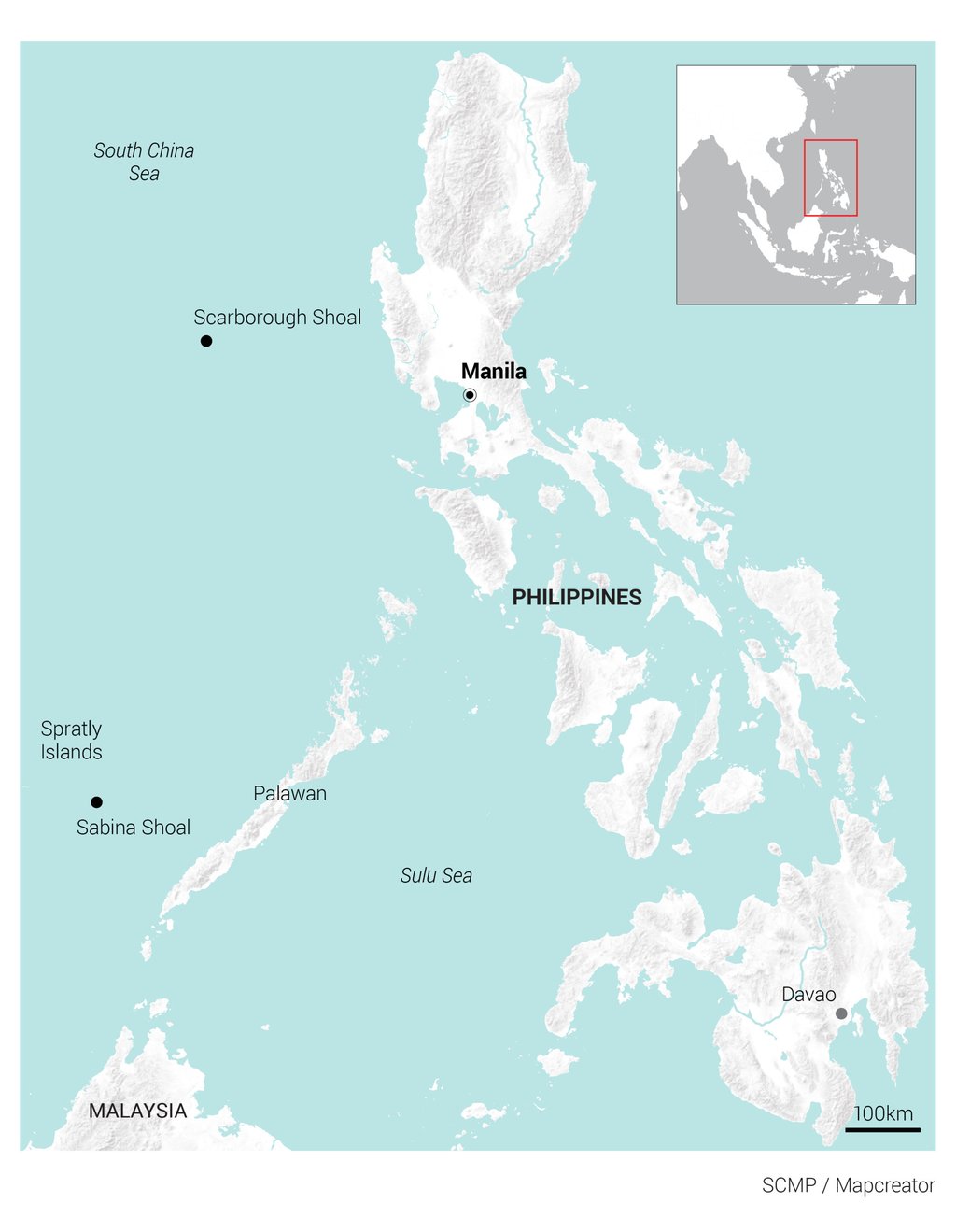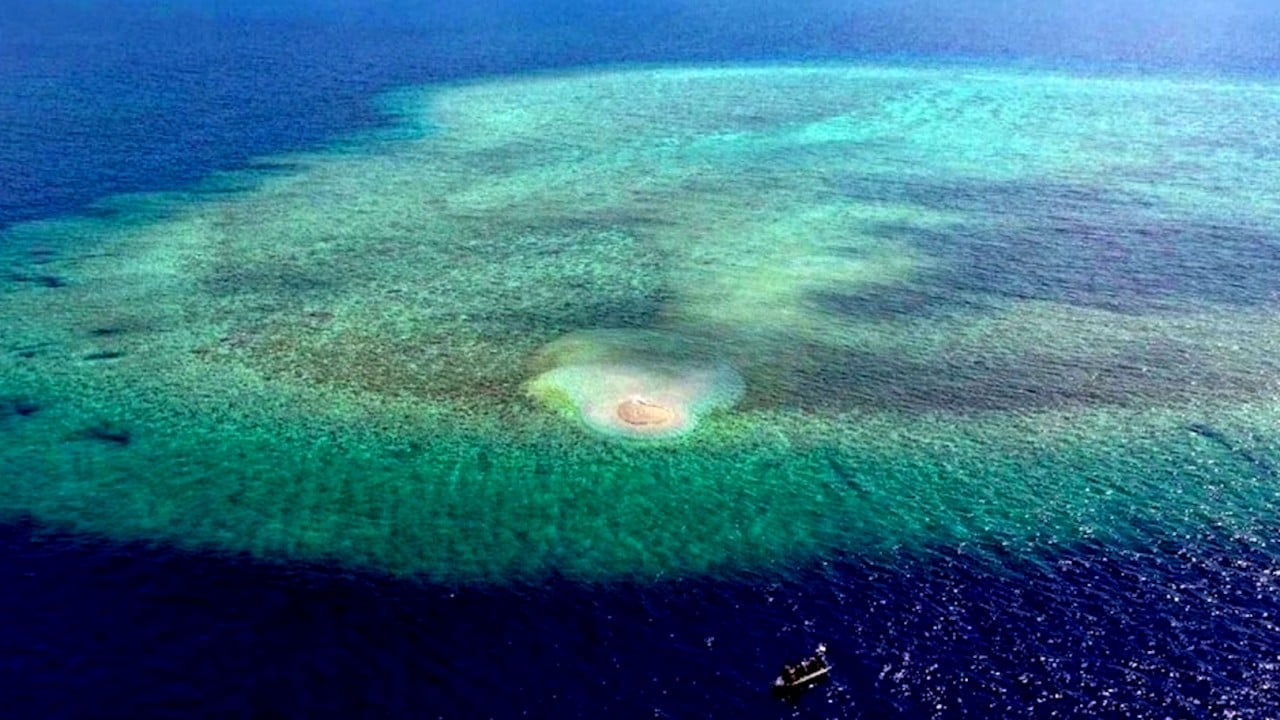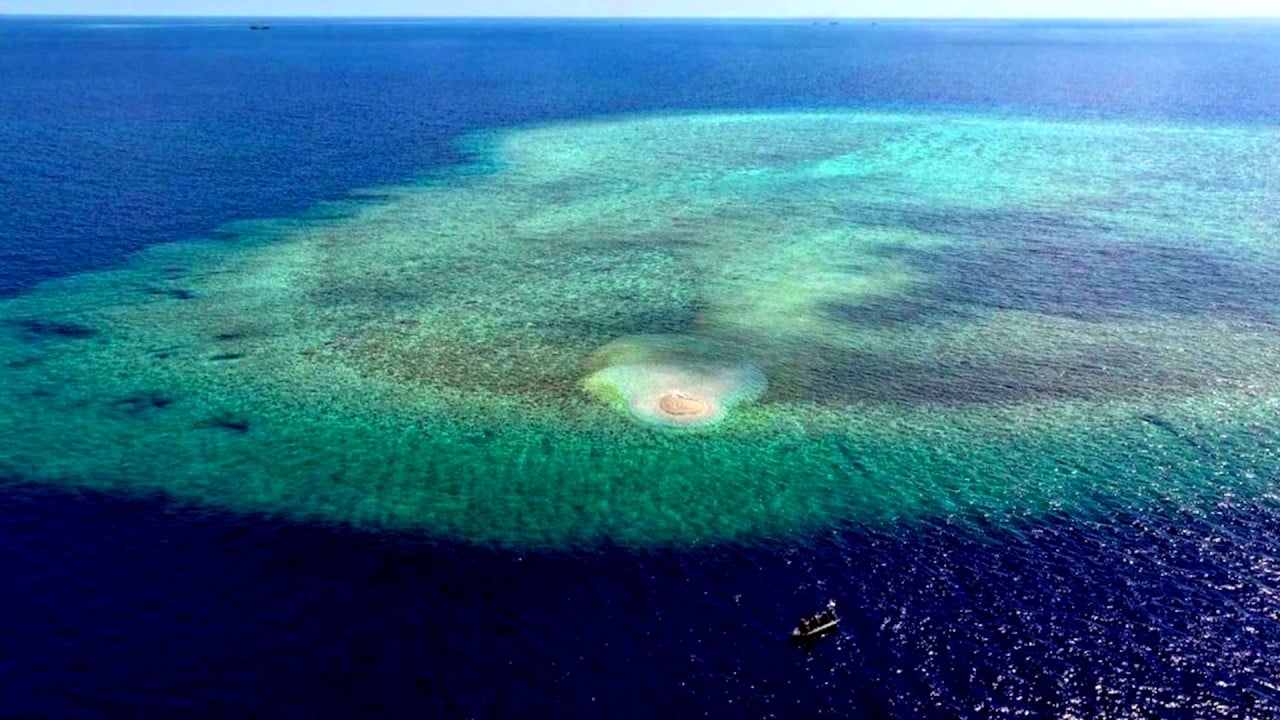China has accused Manila of making “baseless claims” that it had damaged coral reefs in the disputed Sabina Shoal as it published a report that said a Philippine coastguard ship was instead causing environmental damage.
Earlier this year, the Philippines discovered mounds of dead and crushed coral that had been dumped on Sabina’s sandbars underwater and said this was the result of Chinese land reclamation activities, something Beijing denied at the time.
One of the most advanced Philippine coastguard ships, the BRP Teresa Magbanua, has been stationed off the shoal since April – in part to deter any Chinese land reclamation efforts.
The report produced by three subsidiaries of the Ministry of Natural Resources was published on Friday, a day after China told the Philippines to “immediately withdraw” the ship.
Chinese and Philippine coastguards have been involved in a series of clashes near disputed features in recent months. The confrontations near Sabina Shoal have become more frequent and intense in recent weeks, including collisions between ships and China using water cannons against Philippine vessels.
Chinese state broadcaster CCTV said a two-month investigation into ecological conditions around the shoal had concluded that China had not damaged the reef and instead pointed the finger at the Teresa Magbanua.
“Due to the effects of waves and currents, the anchor and anchor chain of the Philippine coast guard vessel will cause ongoing damage to the surrounding reef,” Xiong Xiaofei, a senior engineer at the South China Sea Ecological Centre, one of the institutions that compiled the report, told CCTV.
He also said that “frequent activities” by smaller vessels carried by the Philippine ship such as speed boats, were also having an impact on the coral reef’s ecosystem.
“As for the Philippines’ fabricated claims that China artificially piled up coral debris at Sabina Shoal, causing massive coral bleaching and death in the area, these allegations are without scientific and factual basis,” Huang Huamei, vice-president of the South China Sea Development Research Institute, another body involved in the research, told CCTV.

According to CCTV, the coral reef ecosystem at Sabina Shoal is “generally healthy”. It said the coverage of hermatypic coral – which plays a key role in helping the ecosystem stay functional and stable – is “relatively high” compared with other major reefs and has been stable since 2012.
The investigation established 34 new inspection stations across the entire reef area for verification, CCTV said.
Chen Xiangmiao, an associate research fellow at the South China Sea Institute of China, told CCTV, the Philippine claims were designed to discredit China and manipulate public opinion to support Manila’s “illegal” territorial ambitions in the South China Sea.
“This time, China’s researchers have provided indisputable evidence through on-site sampling and scientific data analysis, disproving the Philippines’ lies and delivering a resounding rebuttal to the habitual liar,” Chen said.
Xiong said his research team had observed some coral bleaching during the investigation, but this was limited to isolated cases caused by seasonal temperature increases – something he said disproved Manila’s claims.
He added that the coastguard ship had repeatedly dispatched boats to interfere with the research team and had twice sent divers to disrupt their activities.
The investigation also found plastic waste marked with Philippine identification in areas where Philippine fishing boats operate, as well as accumulated shellfish remains underwater that were the result of human activities.
Xiong also claimed that several Philippine fishing boats had been “operating illegally” on the northwest side of the lagoon without China’s permission.
Sabina Shoal, known as the Xianbin Reef in China and as Escoda Shoal in the Philippines, has become the latest flashpoint between the two countries.
Last month China demanded that the Philippines remove a warship which has been “illegally grounded” at the Second Thomas Shoal, saying the vessel had “seriously damaged the diversity, stability, and sustainability of the coral reef ecosystems”.



